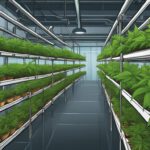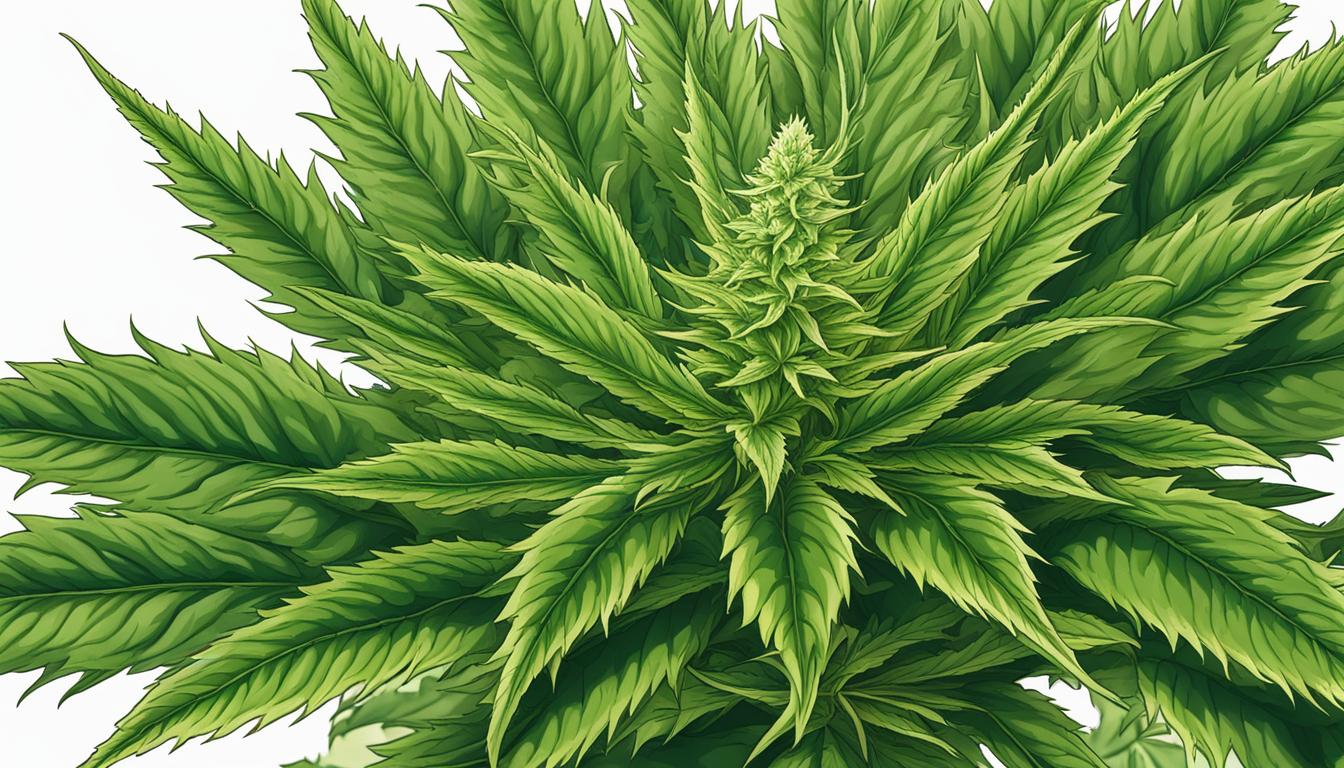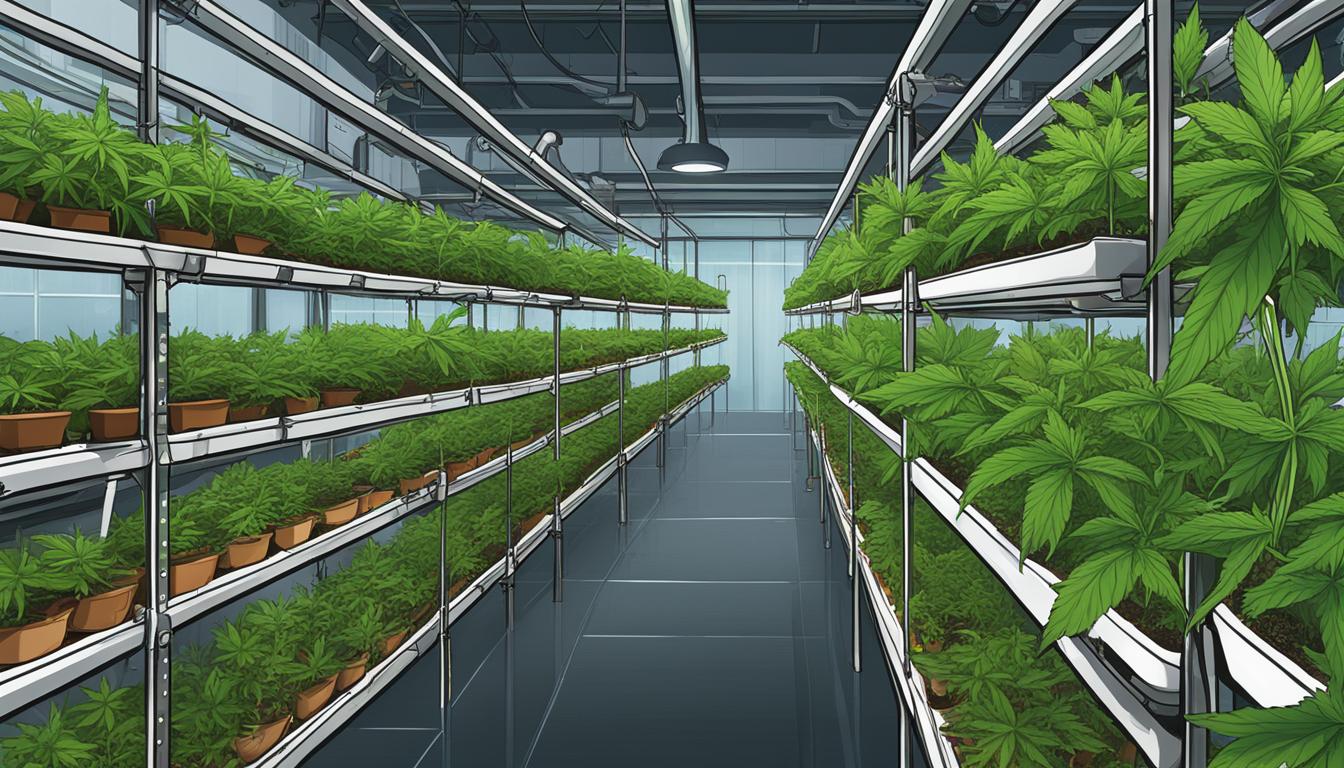If you’re an eco-conscious cannabis cultivator, you’re probably looking for ways to grow your plants sustainably. One of the best ways to do this is by using natural fertilizers. In this guide, we’ll explore the benefits of using organic fertilizers for your cannabis plants and discuss various sustainable cultivation methods that can help maximize your yield.
By using natural fertilizers, you not only avoid harmful chemicals that can negatively impact the environment, but you also help promote healthy soil and plant growth. Plus, sustainable cultivation practices can help reduce your carbon footprint and ensure that you’re doing your part for the planet.
Key Takeaways:
- Using natural fertilizers is an eco-friendly way to cultivate cannabis.
- Organic fertilizers promote healthy soil and plant growth.
- Sustainable cultivation practices help reduce your carbon footprint.
- Natural fertilizers can help improve the quality of your cannabis crops.
- Choosing the right fertilizers and techniques is essential for successful sustainable cultivation.
Understanding the Importance of Sustainable Cannabis Cultivation
When it comes to cannabis cultivation, adopting sustainable practices is crucial for reducing the negative impact on the environment. By promoting eco-friendly cannabis cultivation, you can help preserve natural resources and minimize carbon emissions – contributing to a healthier planet overall.
Whether you’re a commercial producer or growing cannabis for personal use, sustainable practices should be at the forefront of your cultivation process. This includes utilizing environmentally friendly growing techniques that reduce waste and conserve natural resources such as water and nutrients.
The Benefits of Eco-Friendly Cannabis Cultivation
- Reduced carbon emissions
- Preservation of natural resources including water and soil
- Improved soil health and overall plant quality
- Increased efficiency in the cultivation process
- Contribution to a healthier planet overall
By prioritizing sustainability and implementing eco-friendly techniques, you can help reduce the carbon footprint of the cannabis industry and ensure a brighter future for both your crops and the planet.
Sustainable Practices for Cannabis Cultivation
There are many sustainable practices that can be implemented in cannabis cultivation to reduce the negative impact on the environment. These practices include:
- Using natural fertilizers and composts to promote soil health
- Implementing water conservation methods such as drip irrigation systems and rainwater harvesting
- Choosing sustainable energy sources such as solar or wind power
- Reducing waste by utilizing integrated pest management techniques and composting waste material
By incorporating these practices into your cultivation process, you can reduce your environmental impact and promote a healthier growing environment for your cannabis plants.
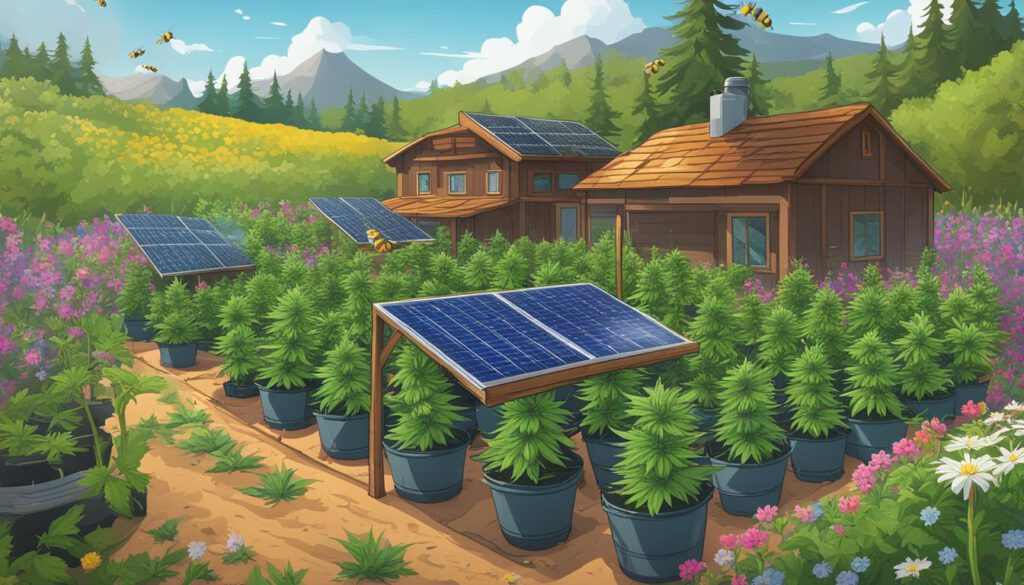
As the demand for sustainable cannabis continues to grow, it’s crucial that the industry as a whole takes steps towards environmentally friendly practices. By understanding the importance of sustainable cultivation and implementing eco-friendly techniques, you can help ensure a thriving future for the cannabis industry and the planet as a whole.
Choosing the Right Natural Fertilizers for Your Cannabis Plants
When it comes to choosing natural fertilizers for your cannabis plants, there are a plethora of options available in the market. However, it is essential to choose sustainable fertilizer choices for cannabis that align with your cultivation goals. Here are some factors to consider when selecting natural fertilizers:
- Nutrient Content: Look for fertilizers that contain essential nutrients such as nitrogen, phosphorus, and potassium, as well as micronutrients like calcium, sulfur, and magnesium. This will help ensure that your plants receive a balanced diet.
- Composition: Choose fertilizers that are made from natural sources, such as compost, bone meal, and fish emulsion. These options are typically more sustainable and environmentally friendly than synthetic fertilizers.
- Consistency: Consider the consistency of the fertilizer, whether it is liquid, granular, or powdery. Liquid fertilizers are easy to apply but may require more frequent application, while granular and powdery fertilizers can provide slow-release nutrients over a more extended period.
Comparing Natural Fertilizers for Cannabis Plants
To help you understand the different types of natural fertilizers available, we have created this comprehensive table:
| Fertilizer Type | Source | Benefits |
|---|---|---|
| Bone Meal | Animal Bones | High in Phosphorus and Calcium |
| Kelp Meal | Seaweed | Rich in Micronutrients and Growth Hormones |
| Compost Tea | Compost | Improves Soil Health and Fertility |
| Fish Emulsion | Processed Fish | High in Nitrogen and Micronutrients |
| Blood Meal | Animal Blood | High in Nitrogen |
As you can see, each natural fertilizer has unique benefits that can support your cannabis plants’ growth and development. It is essential to choose the right fertilizer based on your specific needs and goals.
With so many options available, it can be challenging to determine which natural fertilizers are best for your cannabis plants. Consulting with a knowledgeable expert or doing extensive research can help you make informed decisions and ensure that your plants receive the most appropriate and sustainable fertilizer choices for cannabis.
Implementing Sustainable Cultivation Techniques
When it comes to sustainable cultivation, there are several methods that can help maximize your cannabis yield. By reducing waste and using resources efficiently, you can create a more sustainable growing environment.
Water conservation
One of the key aspects of sustainable cultivation is responsible water management. Depending on your cultivation setup, you can reduce water usage by:
- Collecting and reusing runoff water.
- Installing a drip irrigation system that targets the roots of your cannabis plants directly.
- Using moisture-retaining soil to reduce the need for frequent watering.
By implementing any of these practices, you can maximize your water efficiency and minimize your environmental impact.
Nutrient management
Sustainable cultivation also involves using nutrients efficiently to minimize waste and reduce the possibility of runoff. Here are some tips for responsible nutrient management:
- Measure nutrient levels in the soil regularly to avoid over or under-fertilizing.
- Compost unused plant material to create natural fertilizer for future use.
- Consider using slow-release fertilizers that release nutrients to your plants gradually.
By following these steps, you can maintain optimal nutrient levels and promote healthy plant growth.
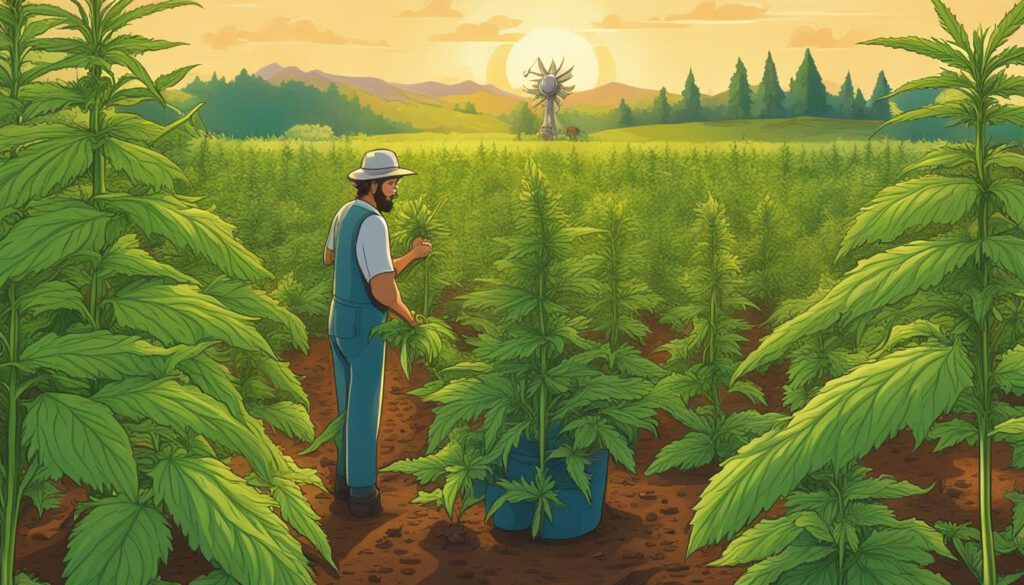
Integrated pest management
Another sustainable cultivation method involves using integrated pest management (IPM) techniques to control pests naturally. IPM involves:
- Encouraging natural predators such as ladybugs or lacewings to control pest populations.
- Using organic pesticides such as neem oil or insecticidal soap.
- Regularly inspecting plants for signs of pest infestations.
By using IPM strategies, you reduce the need for harmful chemicals and create a healthier growing environment for your cannabis plants.
Choosing sustainable materials
Finally, choosing sustainable materials such as energy-efficient lighting and recycled soil can help reduce your environmental impact. Avoid single-use plastics and opt for reusable materials wherever possible.
By adopting sustainable cultivation techniques, you can maximize your cannabis yield while minimizing your environmental footprint. Incorporate these practices into your cultivation process to promote a healthier and more sustainable growing environment.
The Benefits of Using Natural Fertilizers for Cannabis Cultivation
When it comes to cultivating cannabis, using natural fertilizers can offer a range of benefits for your plants and the environment. Here are some of the top reasons to consider incorporating organic fertilizers into your cultivation process:
- Improved soil health: Natural fertilizers contain essential nutrients and microorganisms that help promote healthy soil and plant growth.
- Reduced environmental impact: Unlike synthetic fertilizers, natural fertilizers are made from renewable resources and don’t contain harmful chemicals that can pollute soil and water systems.
- Better plant health: Organic fertilizers provide a slow-release of nutrients, which allows plants to absorb nutrients at a healthier rate and can lead to stronger, more resilient plants.
- Enhanced flavor profile: Many cannabis cultivators believe that using natural fertilizers can enhance the flavor and aroma of their crops.
In addition to these benefits, using natural fertilizers can also help to support sustainable agriculture practices and contribute to a healthier ecosystem overall.
Whether you’re growing cannabis for personal use or as part of a larger cultivation operation, choosing natural fertilizers can offer a range of advantages for your plants and the environment. By considering the potential benefits of organic fertilizers and selecting high-quality, sustainable products, you can help to optimize your cannabis yield and support a more eco-friendly cultivation process.
Conclusion
With the increasing demand for cannabis, sustainable cultivation practices have become imperative. By using natural fertilizers, you not only reduce the carbon footprint of your growing operation, but also enhance the quality of your cannabis crops.
It is important to remember that sustainable cultivation is not just about using natural fertilizers. It involves adopting a holistic approach that supports the ecosystem by conserving resources, minimizing waste, and reducing environmental impact.
Taking Action
To get started with sustainable cannabis cultivation, begin by researching the various natural fertilizers available and choosing those that are best suited for your cultivation goals. Consider implementing sustainable cultivation techniques, such as water conservation and responsible nutrient management, to further enhance the health and yield of your crops.
By taking these steps towards eco-friendly practices in your cannabis cultivation, you are not only contributing to a healthier planet, but also ensuring the long-term success of your business and the cannabis industry as a whole.
FAQ
What are natural fertilizers?
Natural fertilizers are organic substances derived from plant or animal sources that provide essential nutrients to plants for healthy growth without the use of synthetic chemicals.
Why should I use natural fertilizers for cannabis cultivation?
Using natural fertilizers for cannabis cultivation has several benefits. They improve soil health, enhance plant growth, and contribute to the overall quality of cannabis crops. Additionally, they are environmentally friendly and promote sustainable cultivation practices.
How do I choose the right natural fertilizers for my cannabis plants?
To select the most suitable natural fertilizers for your cannabis plants, consider factors such as the nutrient requirements of your specific strain, the nutrient content of the fertilizer, and the sustainability of the product. It is recommended to consult with professionals or conduct research to make an informed decision.
What sustainable cultivation techniques can I implement?
There are several sustainable cultivation techniques you can implement, including water conservation methods, responsible nutrient management, companion planting, and integrated pest management. These practices minimize waste, reduce environmental impact, and maximize the overall yield of your cannabis crops.
How do natural fertilizers benefit cannabis cultivation?
Natural fertilizers offer numerous benefits for cannabis cultivation. They improve soil structure, increase nutrient availability, enhance microbial activity, and promote the development of robust and healthy cannabis plants. Additionally, they contribute to sustainable and eco-friendly cultivation practices.





